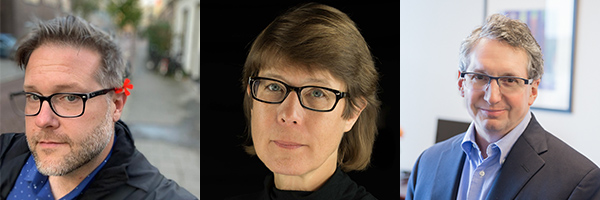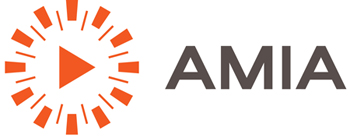Keynote: Environmentally Sustainable Preservation

Environmentally Sustainable Preservation:
Challenges, Solutions, and What’s Ahead
Wednesday, November 17, 2021 | 9:00 am (Pacific)
AMIA 2021 will open with a Keynote discussion of Environmentally Sustainable Preservation with Linda Tadic, Founder/CEO of Digital Bedrock, and Henry Newman, CTO for Seagate Government Solutions, moderated by Tre Berney, Director of Digitization and Conservation at Cornell University Library.
In August 2021, the United Nations Intergovernmental Panel on Climate Change (IPCC) issued a report warning that the world will achieve a global temperature increase of 1.5°C (about 2.7°F) within the next 10 years. This increase, directly caused by global greenhouse gas emissions (GHG) generated by human activities, is the amount of heating that scientists agree is the upper limit for avoiding the most dangerous effects of climate change.
Archives intersect with GHG through energy use, and in generating e-waste by the technologies we must use to keep our digital content viable. The keynote will explore the energy consumption and e-waste generated in current preservation infrastructures and actions, and expand the scope of inquiry to reveal the environmental impact embodied in the full lifecycle of these infrastructures.
Linda Tadic
Linda Tadic is Founder/CEO of Digital Bedrock, a managed digital preservation service that helps libraries, archives, museums, producers, studios, artists, and individuals preserve their digital content. She is also a Lecturer in UCLA’s Department of Information Studies, teaching a course on Digital Asset Management. She was previously an adjunct professor in NYU’s Moving Image Archiving and Preservation program. Her over 35 years’ experience includes positions at HBO, ARTstor, the Media Archives and Peabody Awards Collection at the University of Georgia, Pacific Film Archive, and the UCLA Film and Television Archive. Ms. Tadic consults and lectures on digital asset management, audiovisual and digital preservation, copyright, metadata, and the impact of digital preservation on the environment. She is a founding member and former President of the Association of Moving Image Archivists (AMIA), and is currently on the National Digital Stewardship Alliance (NDSA) Coordinating Committee.
Ms. Tadic is the recipient of the 2021 SMPTE James A. Lindner Archival Technology Medal.
Henry Newman
Henry Newman has over 40 years of advanced systems architecture and performance analysis expertise in solving the most complex challenges for customers in government, scientific research, and industry around the world. This comprehensive experience includes hardware and software requirements analysis and design; file system and HSM design and optimization; system performance analysis and optimization; storage system architecting; high-performance networking; and capacity planning with a focus on high performance computing and advanced UNIX, Linux and Windows systems. For the last few years, Henry has been focusing on security issues for large storage systems.
Mr. Newman worked at Cray Research in a variety of capacities for over 11 years until 1992. He was then the CTO/CEO of Instrumental until its 2015 acquisition by Seagate. Mr. Newman is now the CTO for Seagate Government Solutions and works with engineering teams across Seagate’s production lines from individual storage components to complete systems, with a special emphasis on security.
Tre Berney
Tre Berney is the Director of Digitization and Conservation at Cornell University Library where he is responsible for annual digital collections and preservation priorities for Cornell’s Rare and Distinctive Collections. He’s responsible for the renowned Digital Consulting and Production Services unit at CUL, frequently consulting on digital production, asset and metadata management workflows, software assessment, and user experience goals for clients throughout the University and beyond. Along with leading the Library’s Audiovisual Preservation Initiative, he serves as chair of a faculty board that prioritizes annual digital scholarship and digital humanities projects at Cornell. Over the years has worked closely with Cornell’s Lab of Ornithology, which houses the largest collection of naturally occurring sound and video in the world. Along with being a drummer for several decades, he has a background in audio engineering, mastering, and production for broadcast television and documentary filmmaking.
